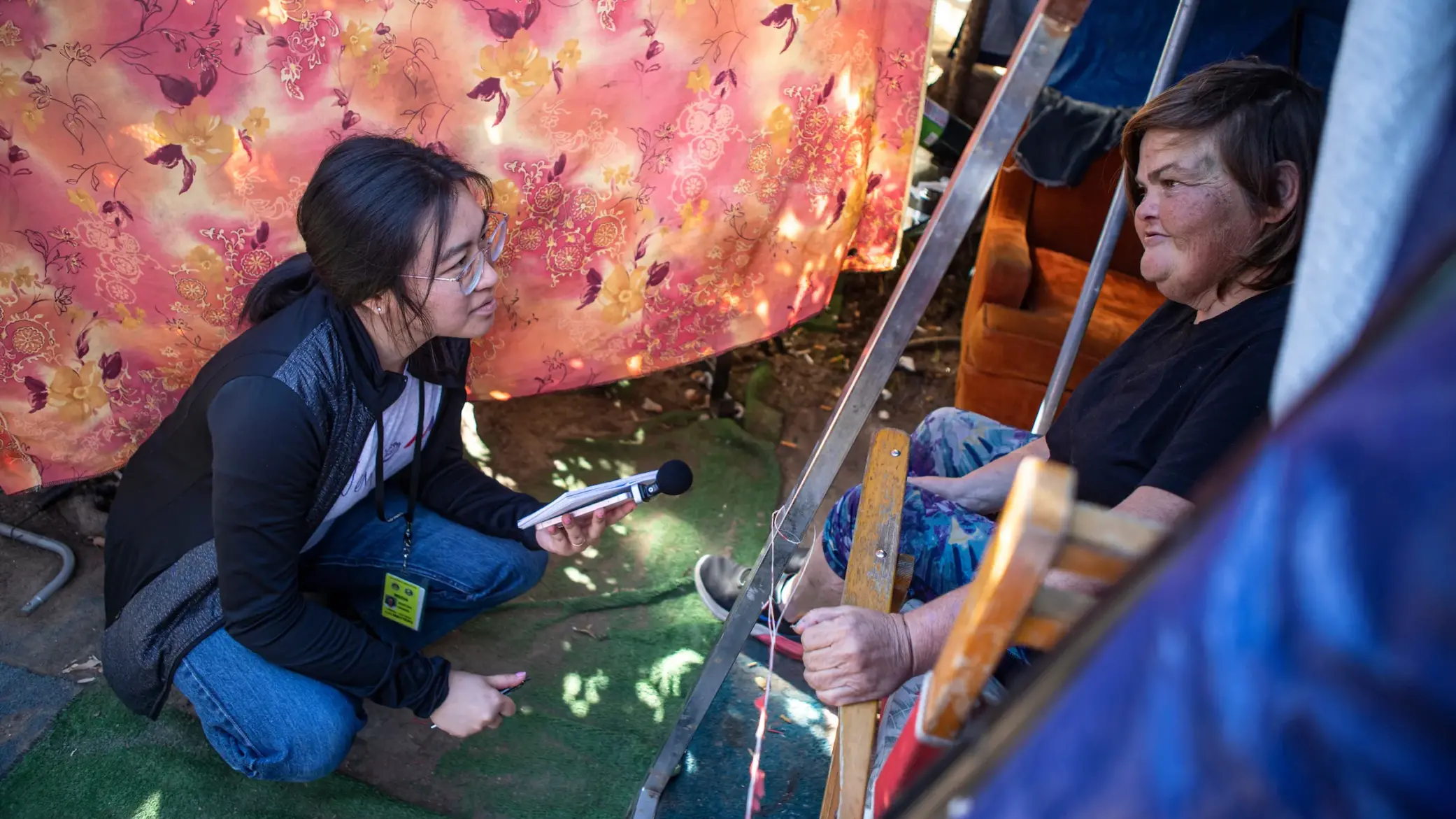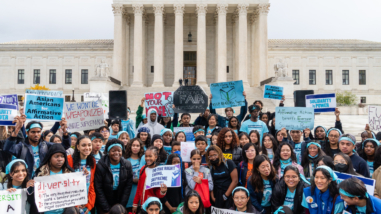Investing in informed and engaged communities

This year the foundation began a three-year exploration to see how we can best support and enhance efforts to promote robust information networks through a targeted media and communications fund that aims to complement and accelerate grants made by specific programs and serve Hewlett’s overall charitable purpose.
The largest grant in our 2023 media and communications fund is a one-time, multiyear $10 million grant to a pooled fund for Press Forward, a national initiative to strengthen communities and democracy by supporting local news and information. Press Forward is taking on a challenge that advocates, policymakers, and engaged community members seeking to address local problems have all faced: Since 2005, approximately 2,200 local newspapers have closed, resulting in 20 percent of Americans living in “news deserts” with little to no reliable coverage of important local events. This dramatic decline in local news has coincided with an increasingly divided America and weakening trust in institutions. Addressing a problem of this scale requires philanthropic collaboration and partnership with practitioners in the field. Through our grant to the Miami Foundation, which is administering the Press Forward pooled fund, we hope to help catalyze this multiyear effort and also learn from funders and practitioners with deep expertise.
The rest of our exploratory grantmaking fund goes beyond local news and will help us learn and adopt best practices in supporting media and communications through a range of charitable efforts. We hope to learn whether and how philanthropy can help nurture trusted, reliable information sources that respond to communities’ information needs; deliver smart dialogue based on evidence and across difference; inoculate against misinformation; and create the public square where people can forge solutions to the thorny problems our foundation focuses on. Consistent with Hewlett Foundation norms and best practices, these grants are typically awarded as multiyear, flexible funding wherever legally permissible. All our journalism grants ensure that newsroom grantees retain full editorial independence.
In 2023, these grants totaling $8 million have included:
- Grants to support media and civic information outlets serving communities and geographies related to Hewlett’s core programs, especially those serving and representing the voices of populations that have been underserved by legacy media. Examples of this include: The 19th News, an independent, nonprofit newsroom reporting at the intersection of gender, politics and policy; Capital B, a national newsroom that combines local service reporting, national explanatory journalism, and community engagement for Black American audiences, and CalMatters, California’s largest statehouse newsroom and the only nonprofit journalism outlet dedicated to covering America’s biggest state and Hewlett’s home region.
- Grants to support communications-related research, such as Brown University’s Information Futures Lab, which works across nonprofits, communities, and newsrooms to design, pilot, and evaluate paths to healthier information ecosystems, and the Perception Institute, which conducts cognitive and communications research on race, gender, ethnic, and other identities into solutions that reduce bias and promote belonging.
- Grants to support infrastructure of news and civic information, including the Institute for Nonprofit News, which strengthens and supports more than 400 independent news organizations that range from local news to in-depth global reporting, and the Tiny News Collective, which supports news outlets around the country that are in their initial stages of creation.
- Grants to support organizations that offer networking, convening, and learning. This includes grants that specifically serve media and communications practitioners, such as Media Impact Funders, the Communications Network, and the Online News Association, as well as grants for convenings related to specific issues to serve journalists, civil society experts, and policymakers, as with Aspen Digital and The Economist Group.
We have much to learn about what role philanthropy can play in sustaining healthy information ecosystems. We know they are at an inflection point, with social media deprioritizing news and civic information, artificial intelligence posing new perils and possibilities, and a new generation of consumers whose information habits are vastly different from their elders. We also know that the traditional media of the past are not the sole or even leading component of information ecosystems moving forward. The creative thinkers and problem-solvers that we have come to know through this effort — experts helping pilot new information solutions and practitioners finding new ways to serve communities’ information needs (whether they call themselves journalists or not) — are cause for optimism that we can, collectively, find a way forward toward a future where everyone is informed and engaged in a thriving democracy.



